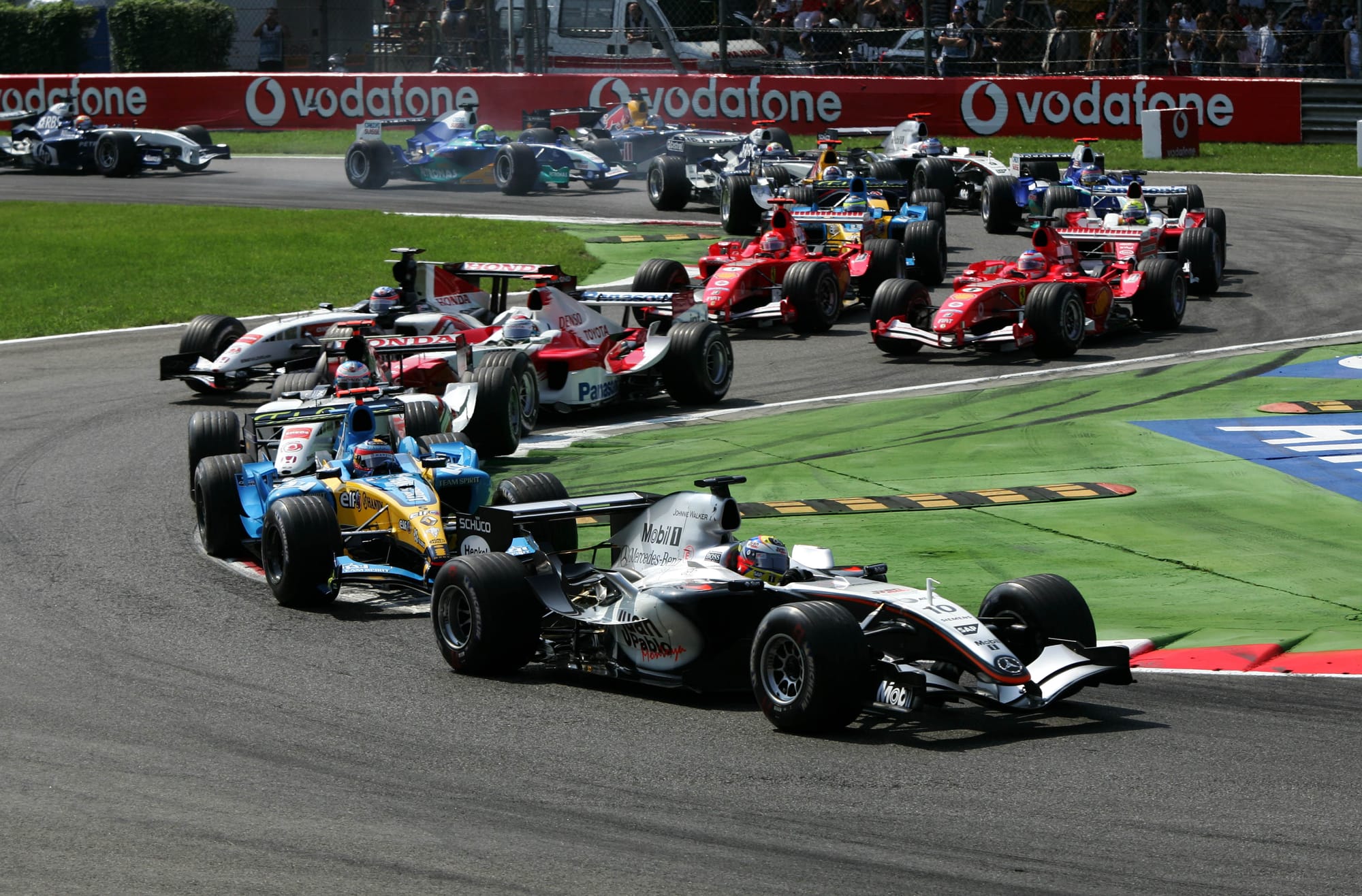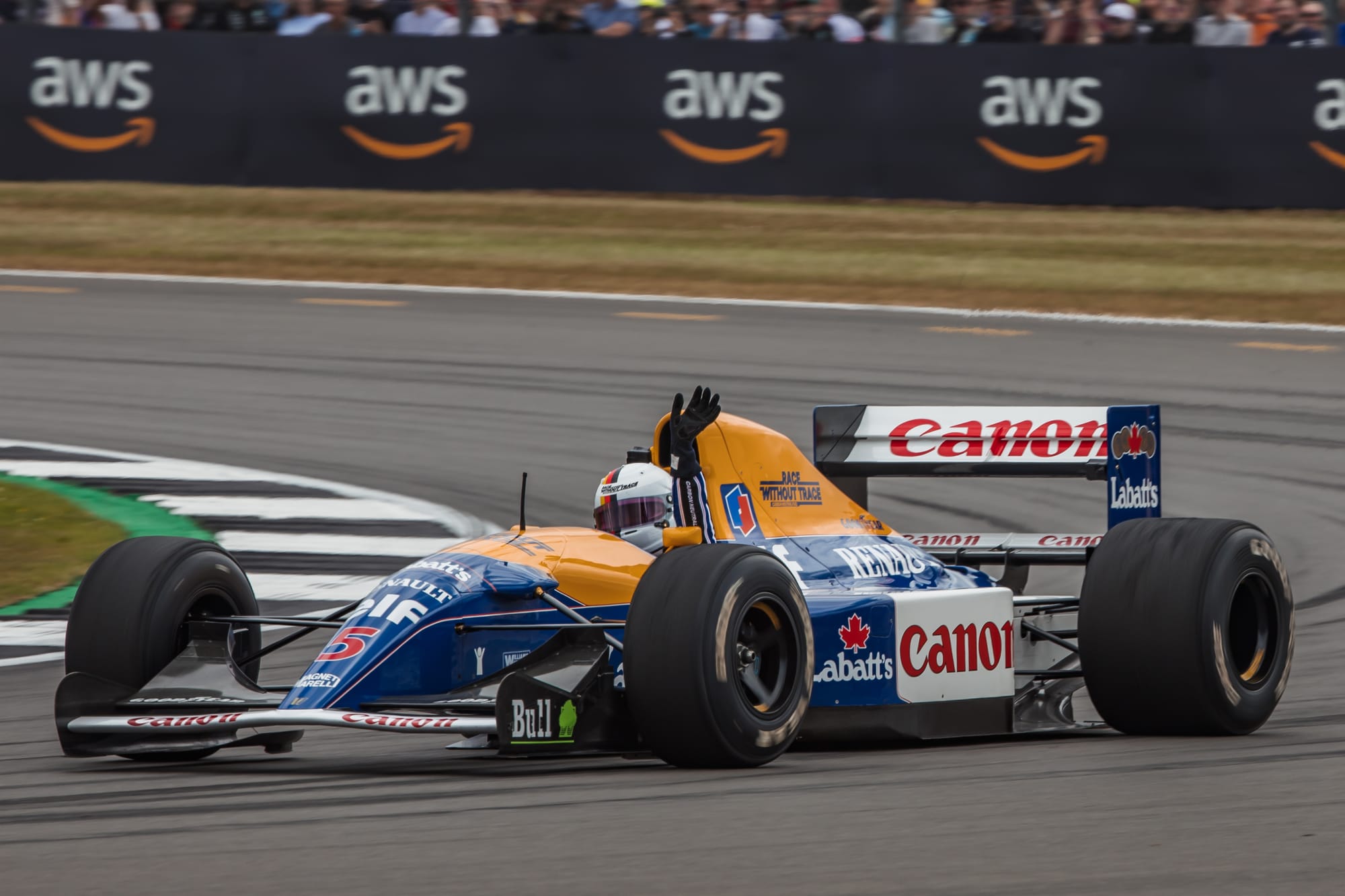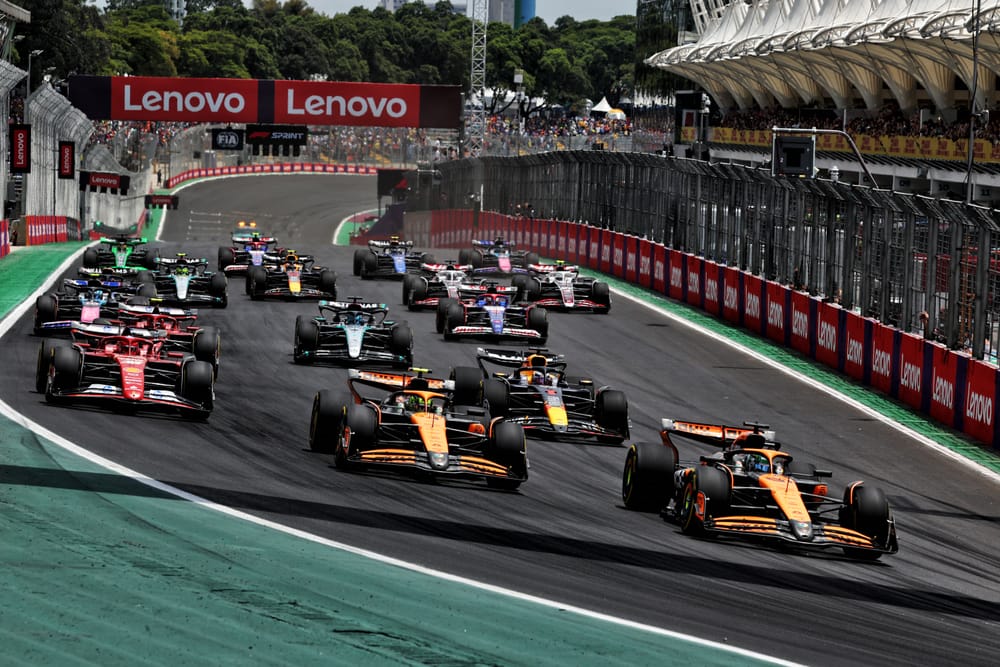The potential for V10s to return to Formula 1 is not just a pipe dream, with the idea actually being considered within the FIA.
Amid intrigue prompted by a social media post from FIA president Mohammed Ben Sulayem mentioning the notion of bringing back V10s, The Race has learned that the governing body has embarked on a formal evaluation process.
With F1 chiefs in the final stages of fine-tuning the new turbo hybrid engine regulations for 2026, thoughts have already started to shift to the next rules set from 2030.
Aware of the need to start getting some long term plans in place because of the lengthy lead time that engine regulations require, discussions have begun within the FIA about what the road map should be.
The FIA is approaching the situation with an open mindset, and wants to put all options on the table to evaluate what would be the best fit for F1.
And, while it could be that the simplest route of keeping the current turbo hybrid power units wins, one option that has gathered some momentum is reverting to a V10 normally-aspirated power unit that is run on fully sustainable fuel.
This idea of the V10 has stood out for Ben Sulayem, who posted on Instagram on Thursday night about the idea.
“This week’s F1 launch in London has triggered a lot of positive discussion on the future of the sport,” he said.
“While we look forward to the introduction of the 2026 regulations on chassis and power unit, we must also lead the way on future technological motorsport trends.
“We should consider a range of directions including the roaring sound of the V10 running on sustainable fuel.
“Whichever direction is chosen, we must support the teams and manufacturers in ensuring cost control on R&D expenditure.”

While a V10 return would in theory be a step back in technology and away from the electrical hybrid element that has been so important for car manufacturers, there are a number of factors in its favour.
Ultra-noisy engines would likely be a big hit with fans, who have long complained that the current turbo hybrids are not as loud as the previous generations of cars.
The power units could also involve much cheaper to develop technology than the turbo hybrids – which may open up potential manufacturer interest from those who feel priced out at the moment.
There is also a suggestion that it could open the door to wholly independent engine manufacturers, like Cosworth, to return to F1 – and stop grand prix racing from becoming so reliant on car makers.
Relying on manufacturers to retain their long-term interest in F1 could leave the championship exposed if there was a sudden exodus - especially amid a time when car makers are facing financial difficulties and uncertainties caused by the switch to electric models.
Another element in favour of a naturally aspirated engine is weight, because the battery elements of the current hybrids have added a lot of bulk to F1 cars at a time when efforts are being made to make them more nimble again.
It is understood that the FIA is keen to give the V10 idea some proper consideration, which will likely involve some form of research working group being set up to discuss the idea with relevant parties to work out if it is a goer or not.
Love F1's V10 era? Join The Race Members' Club on Patreon - with 90% off your first month right now - and get early and ad-free access to every episode of our Bring Back V10s retro podcast series, exclusive Bring Back V10s Debrief videos, our F1 Revisited series reliving a whole classic year race by race and many more extras and chances to get involved in the series
The FIA’s thoughts on V10s being a potential right fit comes after F1 CEO Stefano Domenicali said last year that there could be strong arguments to move away from hybrids.
Asked by this writer about where he saw F1’s future engine rules going, he said: “I don't think that hydrogen itself will be a medium-term solution for F1, for many, many reasons – including technology, cost, and safety.
“But I do believe that the right way to develop that [weight reduction] would be either to stay with this kind of concept, with moves to reduce the weight, or – if sustainable fuel is doing the right job to be zero emission and we are taking the point of sustainability in the right way – maybe we don't need anymore to be so complicated or so expensive in terms of engine development.
“So we may think to go back to engines that are much lighter and maybe with a good sound.”

Sebastian Vettel has wowed fans in recent years by demonstrating a host of F1 machinery running with V10 engines powered entirely by sustainable fuels - such as the 1992 Williams-Renault pictured above.
"I love the cars. I love to have the sensation for the V10," he said.
"For the history going forwards, I don't know, that's a separate another discussion to have: what is the better way?
"What is the cheaper way as well? Because these [turbo hybrid] engines cost a fortune, their development costs a fortune up to this point."



